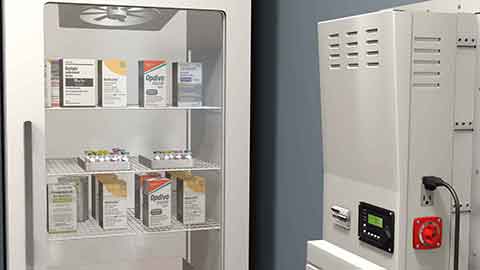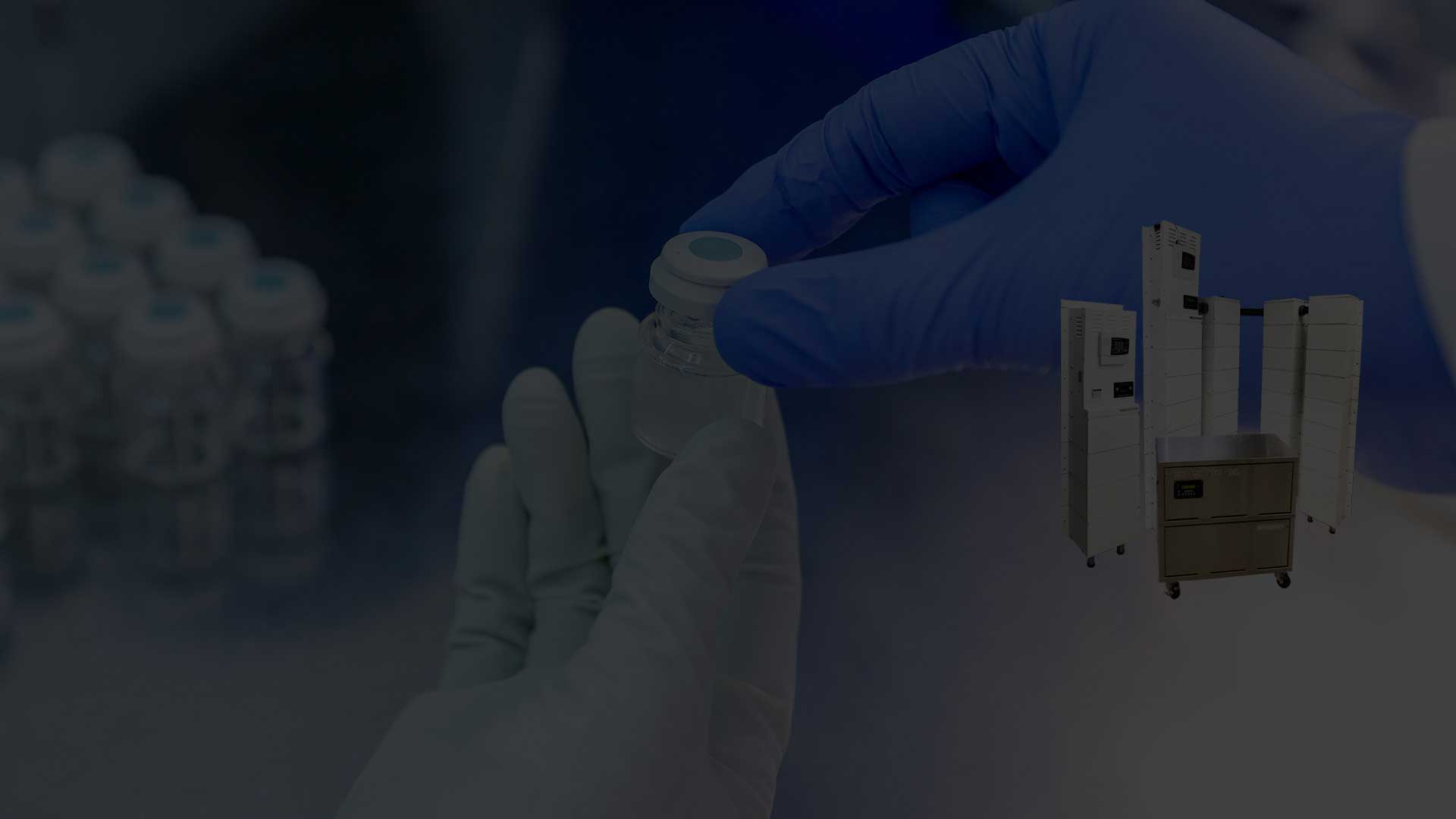Powering Up Your Healthcare Facility: Critical Insights on Emergency Power
In case you missed it, catch up on the previous entries in our series detailing the design and operation of Healthcare facilities and why backup power is crucial for modern and fully-optimized operations.
In healthcare architecture and electrical engineering, consideration of reliable uninterrupted power is crucial.
Imagine, a bustling hospital where lives are being saved, and cutting-edge medical equipment operates with precision. Meanwhile, valuable biomedical materials like life-saving medicines and research samples, are stored in delicately controlled environments. In such a demanding environment, the importance of backup power cannot be overstated.
Backup generators and UPS (uninterruptible power supply) systems are crucial for protecting healthcare facilities from power outages. In this article, we will explore emergency power needs for healthcare facilities.
The Crucial Role of Backup Power in Healthcare Facilities
In healthcare, where time is critical, having constant power is very important. Hospitals and medical facilities have many important machines and devices. These include life support machines and diagnostic devices. They also have refrigeration units for medicines and biological samples. 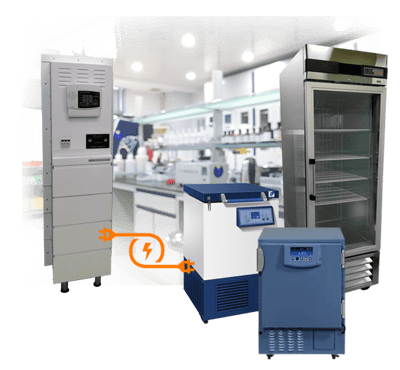
When the power goes out or changes, medical equipment could suddenly stop working. This puts patients at risk and reduces the chance of positive patient outcomes.
To prevent these emergencies, backup power solutions, such as generators and UPS systems, activate. And while these two solutions have a lot in common, they are distinctly their own.
Backup generators offer continuous power by running on fuel sources such as diesel or natural gas. UPS systems provide immediate power. And, while gas generators can run for longer, modern technology has had a large impact.
So much so, that battery UPS units can provide energy for hours or even days. In addition, the smooth transition guarantees healthcare professionals can focus on giving the best care without interruptions. They also have time to safely shut down if necessary.
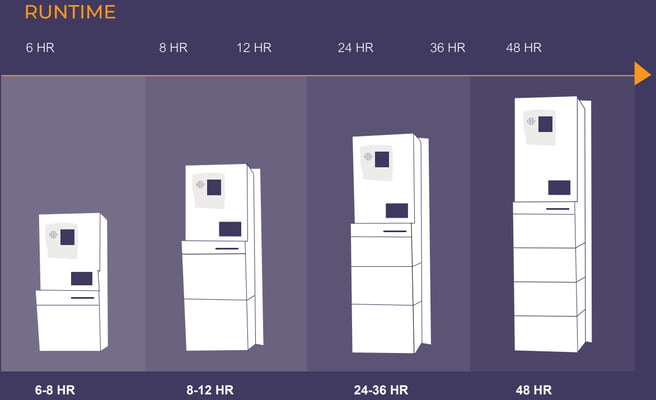
Unraveling the Complexity of Emergency Power Requirements
To understand the emergency power needs of healthcare facilities, we consider many factors that affect decision-making. Below are some critical insights to consider:
Load Analysis
To figure out how much emergency power a healthcare facility needs, start with a load analysis. We need to figure out how much power important medical equipment uses. This includes machines that diagnose illnesses and critical care equipment. To collect accurate data on power specifications, it is important to collaborate with medical staff and equipment manufacturers.
Importance of Biomedical Materials
Beyond just medical equipment, healthcare facilities must also protect sensitive biomedical materials. Vaccines, blood products, and research samples need to be kept at a consistent temperature to work well. Emergency power is important for storing materials and advancing medicine by keeping them safe.
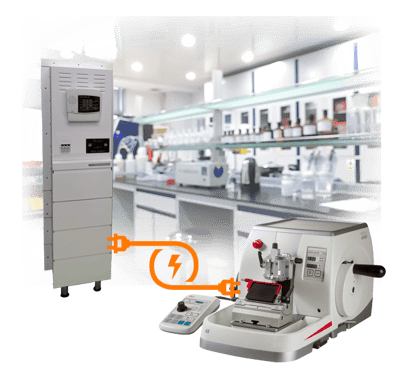
Redundancy for Resilience
Healthcare facilities can't afford a single point of failure. By including extra backup options, emergency power solutions can still function if one unit stops working. Redundancy can be achieved through parallel UPS systems or N+1 configurations for generators, minimizing the risk of downtime and maintaining essential services.
Scalability and Future-Proofing
Healthcare facilities are dynamic environments, subject to expansion and technological advancements. When selecting emergency power solutions, architects and electrical engineers must account for scalability and future power requirements. Choosing flexible systems that can accommodate growth is vital to avoid costly replacements down the road.
The Importance of Protecting Biomedical Materials
As we focus on running medical machines, we must also safeguard biomedical and vaccine supplies. Let's delve into the importance of guarding these resources:
Medicines
Timely access to medicines is vital in healthcare settings. Power outages can disrupt pharmacy refrigeration units, potentially compromising the efficacy of life-saving medications. Emergency power solutions provide a safety net, ensuring the continuous operation of critical storage systems, and preserving the potency of medicines.
Samples
Healthcare facilities frequently handle research specimens and diagnostic samples. Proper storage conditions are crucial to maintain the integrity of these samples and ensure accurate test results. With the aid of emergency power, facilities can avoid sample degradation, supporting essential research and medical breakthroughs.
Blood Products
Blood banks play a crucial role in healthcare emergencies, requiring consistent power for refrigeration units. Emergency power solutions guarantee the preservation of blood products' integrity, contributing to the availability of life-saving blood for patients in need.
Conclusion
To design strong hospitals, healthcare architects and electrical engineers must grasp emergency power needs. Backup power solutions, like battery backup (a.k.a. UPS) systems, stand as pillars of support. They ensure seamless operations during power outages and protecting invaluable biomedical materials and patients alike.
Healthcare professionals can design efficient and effective facilities by understanding emergency power needs. They should prioritize patient care and medical advancements. This will power the future of healthcare.
We can embrace critical insights that help save lives and drive medical progress with emergency power solutions.
However, in the event the power goes out, the clock starts and temperatures begin to rise.
Let Us Assist You With Your Backup Power Needs!
Plus, if your lab or storage room is truly tight on space, a Battery backup system offers compact size and sealed batteries allow for installation in small spaces and flexible positioning. Meaning now matter how crowded your operating or vaccine storage room is, you can ensure your critical medical equipment and life support systems will be protected.
No matter what system you choose, they make sure your inventory stays safe. They guarantee a smooth switch from regular power to backup power, so you won't have to worry about losing power suddenly and risk any temperature excursions.
And for Facilities who perform outpatient or mobile blood collection, battery power instantly engages, keeping your operations going with zero downtime due to their advanced battery technology.
Even better, is that battery generators can be outfitted with as much power as you want
- Overnight
- All day
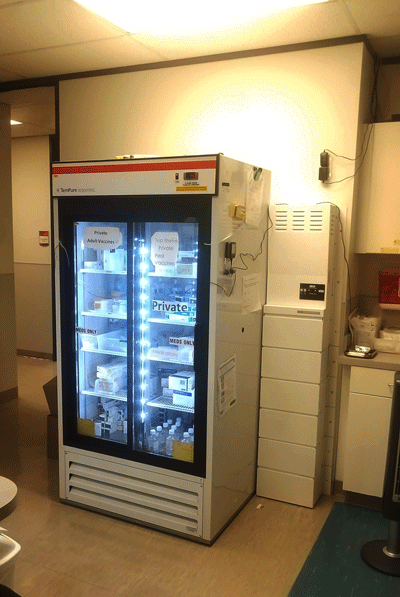
- Over a weekend
- Or even for a whole week.
So, to protect your facility from tens of thousands of dollars in lost inventory speak to a Medi-Products battery backup expert.
They’ll help design you a system that both meets your power needs and will fit inside your facility—for a much lower cost than what your vaccines are worth.
Designing a system for you is as easy as taking a picture of your appliance’s nameplate, and a photo of the room where it’s in.
Then, you just email both photos to our Product experts, and we’ll provide you with multiple options for backup power protection.
For more information contact: 1.800.7653237
Read the next blog in our series on backup power when designing healthcare facilities here.

